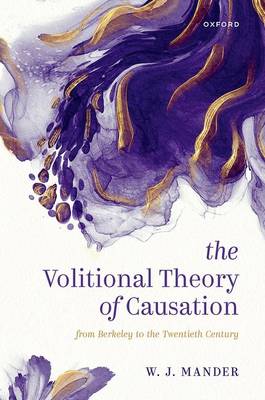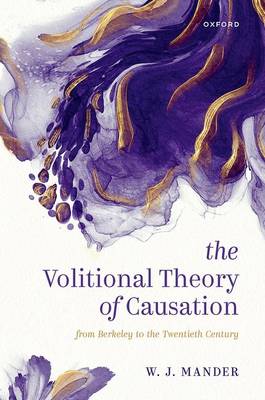
- Afhalen na 1 uur in een winkel met voorraad
- Gratis thuislevering in België vanaf € 30
- Ruim aanbod met 7 miljoen producten
- Afhalen na 1 uur in een winkel met voorraad
- Gratis thuislevering in België vanaf € 30
- Ruim aanbod met 7 miljoen producten
Zoeken
The Volitional Theory of Causation
From Berkeley to the Twentieth Century
W J Mander
Hardcover | Engels
€ 161,45
+ 322 punten
Omschrijving
This book presents a history of the volitional theory of causation--the philosophical proposal that volition, or will, of the same or broadly the same stamp as that which we experience in our own deliberate and voluntary doings, should be taken as the basis for all causality. Few today know much about the volitional theory of causation, and even fewer have given it any serious attention. But if current opinion regards this suggestion as an unusual one, of minor importance, the historical record shows otherwise, revealing that it is a theory which has been proposed and developed again and again throughout the modern era. Its obscurity is only a recent phenomenon. Starting at the beginning of the Early Modern period and progressing right up the modern times, the historical discussion takes in both supporters and critics, as well as both famous and less well-known figures, to tell the story of a long-running debate which contemporary history of philosophy has forgotten. The principal figures discussed are Berkeley, Hume, Reid, Maine de Biran, Schopenhauer, Mansel, Mill, Martineau, Alexander Campbell Fraser, Borden Parker Bowne, and G.F.Stout, although many other philosophers are also considered. The book ends with a consider of the philosophical merits of the theory.
Specificaties
Betrokkenen
- Auteur(s):
- Uitgeverij:
Inhoud
- Aantal bladzijden:
- 304
- Taal:
- Engels
Eigenschappen
- Productcode (EAN):
- 9780192867537
- Verschijningsdatum:
- 9/05/2023
- Uitvoering:
- Hardcover
- Formaat:
- Genaaid
- Afmetingen:
- 164 mm x 240 mm
- Gewicht:
- 607 g

Alleen bij Standaard Boekhandel
+ 322 punten op je klantenkaart van Standaard Boekhandel
Beoordelingen
We publiceren alleen reviews die voldoen aan de voorwaarden voor reviews. Bekijk onze voorwaarden voor reviews.











